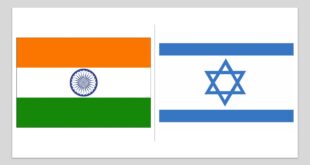- India announced on Friday that it wants to modify the 62-year-old Indus Waters Treaty (IWT) with Pakistan, citing what it called Pakistan’s “intransigence” in resolving disputes over the Kishenganga and Ratle hydropower projects, both in Jammu and Kashmir.
- India also protested Pakistan’s “unilateral” decision to approach a court of arbitration at The Hague.
- Sources said the government had written to Pakistan on January 25, calling for modifications to the treaty as per Article XII (3) of the IWT that deals with the “final provisions” of the treaty.
- The first hearing of the Pakistani case at the Permanent Court of Arbitrage at The Hague in the Netherlands began on Friday, with India boycotting the court process.
- The decision to issue notice to Pakistan, with a request for a response within 90 days, is a major step and could lead to the unravelling and renegotiation of the water-sharing treaty.
- The treaty is often seen as a rare example of India-Pakistan consensus, at a time when the two nations have snapped trade and cultural exchanges, and most bilateral talks.
- The sources said Pakistan’s move to push the World Bank for a Court of Arbitration ran counter to the pre-existing channel of dispute resolution through a “neutral expert” appointed by the World Bank.
- Indian officials said the “parallel processes” instead of a “graded mechanism” had led to a stalemate, adding that India was left with no choice but to demand that Pakistan come to the table to negotiate amendments to the treaty. Officials declined to comment on what modifications India wanted.
SOURCE: THE HINDU, THE ECONOMIC TIMES, PIB
 Chinmaya IAS Academy – Current Affairs Chinmaya IAS Academy – Current Affairs
Chinmaya IAS Academy – Current Affairs Chinmaya IAS Academy – Current Affairs

